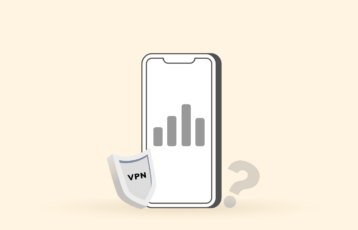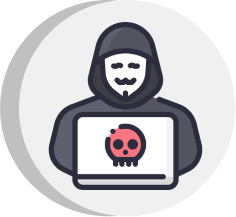
Cracking a software program means creating a pirated version of it. This often aims to remove the software’s copy protection and utilize it in a manner that the developer didn’t intend. You can find cracked versions of the most popular software programs, so unsurprisingly, hackers are now targeting leading VPNs.
What is a cracked VPN?
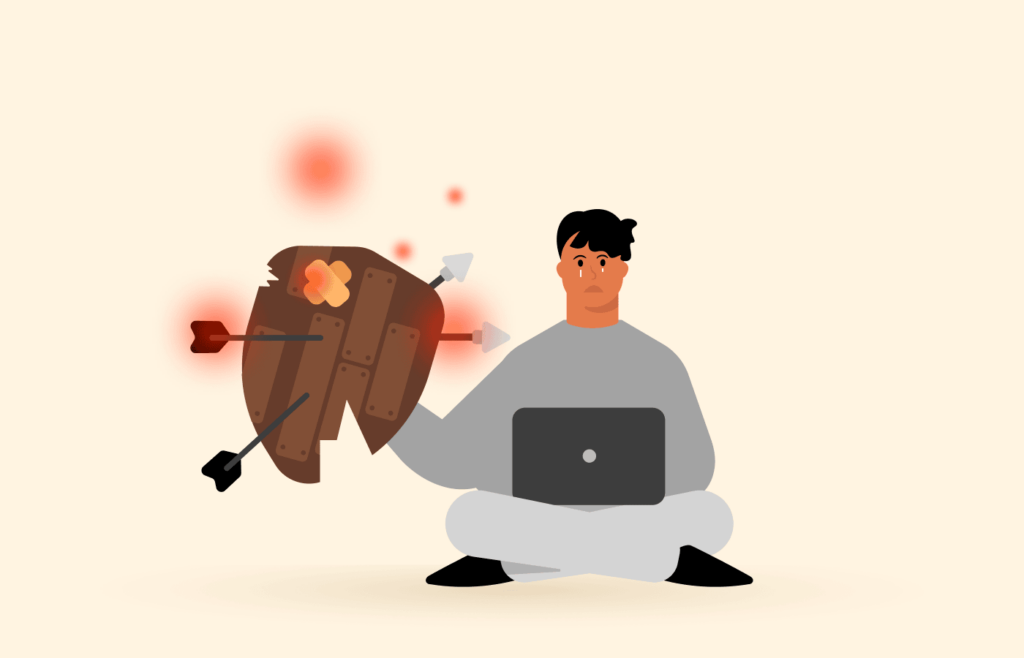
A cracked VPN is a premium VPN software program with removed software or copy protection. Cracking a VPN means pirating it to access all its features without paying.
Now, if you wonder, “Can a VPN be cracked?” then the answer is, “Yes.” Hackers are often responsible for cracking VPNs or providing the tools for this. So far, you can find cracked versions of the most popular VPNs, including ExpressVPN, PIA, and Surfshark. Also, there are cracked VPNs for Android, iOS, and Windows operating systems.
You can download cracked VPNs for free or cheaply from certain websites. Typically, they come with a code that enables you to activate them. After successful activation, you have access to all the VPN features that used to be premium.
While this sounds good, cracked VPNs are a lie and unlawful. VPNs require internet access to work, enabling the VPN provider to keep you safe online. Cracked VPNs are instead from hackers looking for ways to harm your computer or steal certain information.
Does a cracked VPN work?
A cracked VPN might work, but this comes with many associated risks. You may still browse the internet anonymously, but this can backfire in the form of security issues to your privacy and damage to your device.
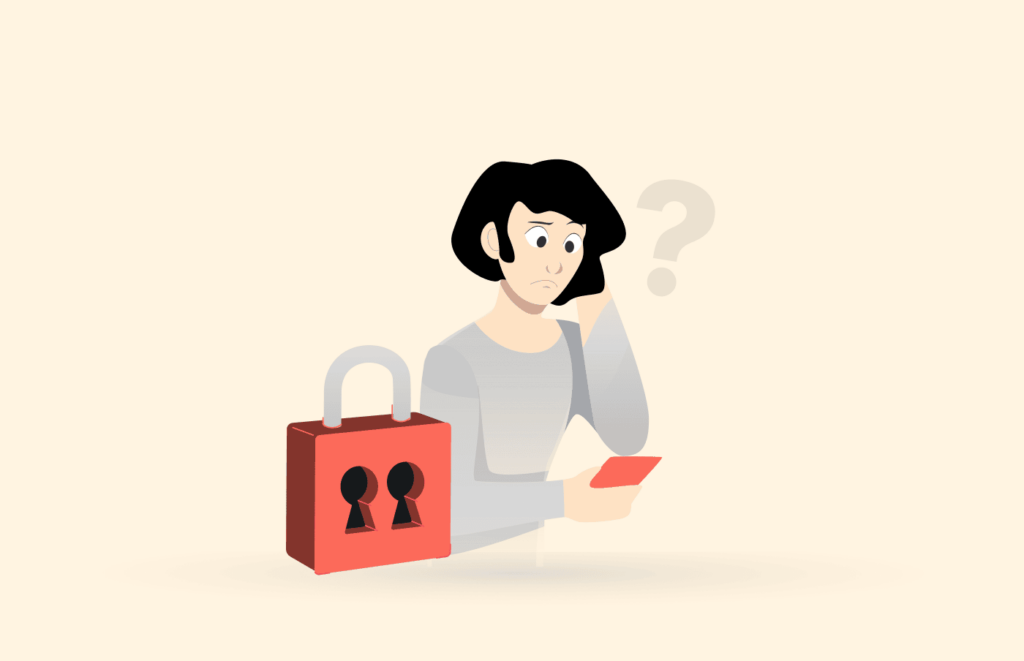
You may also be the subject of a lawsuit if you’re using a cracked VPN. Beyond these, other challenges make cracked VPNs a dangerous alternative to regular VPNs. It’s advisable to stay entirely away from them.
Cracked VPNs can be illegal

VPNs are typically proprietary software programs with software protection. This means the developers make them available to the user but still exercise copyright protection.
You can purchase a copy of the software but can’t distribute it without permission. This copyright protection typically has legal backing that can make you the subject of a lawsuit if breached. Court cases involving VPN cracking are rare, but they can happen, and it’s better to avoid them by using the VPN legally.
Cracked VPNs are dangerous
Cracked VPNs pose different threats and can harm or damage your computer. They don’t function properly and don’t receive the level of support that legitimate VPNs do.

Fundamentally, cracked VPNs are incompatible with a VPN app’s actual nature and operation. VPNs can’t work offline as all the work happens on the server, including authorization. When the VPN server realizes you’re an unauthorized user, it denies your connection.
That means just because a VPN app carries the logo of top vendors, such as ExpressVPN and Surfshark, doesn’t mean it’s from them. It may be from a hacker trying to install malware onto your computer. This makes cracked VPNs even more dangerous. Below are the key drawbacks of such VPNs:
1. Compromised online security
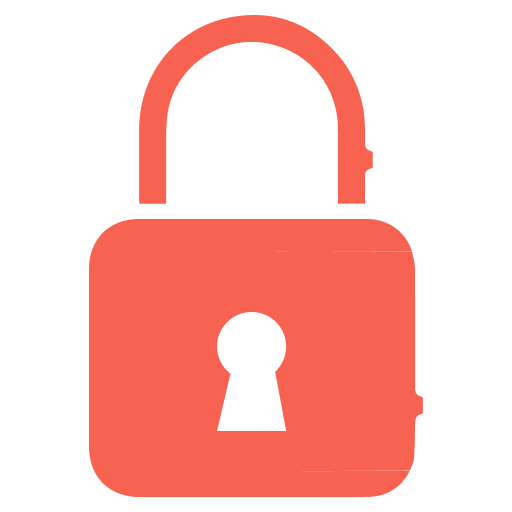
Unlike premium VPNs, cracked VPNs aren’t reliable at establishing secure connections between two networks, defeating the primary purpose of using a VPN.
An unreliable VPN poses risks to your online privacy and security. The hacker behind the VPN may intercept every data and traffic you send. ISPs can also monitor your online activities and report you to the government or law enforcement agencies.
2. Ransomware
Ransomware is malicious software that threatens to block access to your computer unless you pay a certain amount. You can’t download cracked VPNs from trusted and official sources; instead, you find them on unsecured and random web pages. These web pages can contain viruses and ransomware that pose severe threats to your computer.
Also, the cracked VPN itself can be a disguised form of ransomware. You may only realize this after you download it. The VPN can completely shut down access to your computer until you pay a hefty amount of money.
3. Adware
Besides ransomware, websites that host cracked VPNs also contain various kinds of adware. While these are less dangerous than ransomware, they’re also very pesky and can get on your nerves.
Adware programs continue to display or download advertising materials such as pop-ups. It’s impossible to eliminate these types of advertisements, and they’ll continue to appear as long as the VPN remains active. Adware can significantly slow down your computer and contain links to malicious websites that can cause greater harm.
4. No more updates
Once you switch to a cracked VPN, bid goodbye to updates, as you’ll stop receiving them. That’s because VPN providers don’t recognize your app, and updating will stop it from working.
Developers update their apps to address issues and add new and exciting features. For example, the update might help address bugs and crashes, expand supported devices, or add protection from a new virus. However, using an unrecognized app means you miss out on these features and further risk your device.
5. Lost customer support access
Technical and customer support is crucial for legitimate customers since there’s a high chance of encountering an issue while using the VPN. Most VPN vendors offer 24/7 customer support through live chat, call, or email. However, you can’t file a complaint with customer support if you encounter an issue while using a cracked VPN.
6. Privacy risks
Privacy risks constitute one of the main reasons for avoiding cracked VPNs. While the VPN might work, you may connect to unknown servers that hackers have set up. Since your traffic first passes through these hacker-controlled servers, you give them unrestricted access.
How to avoid a cracked VPN
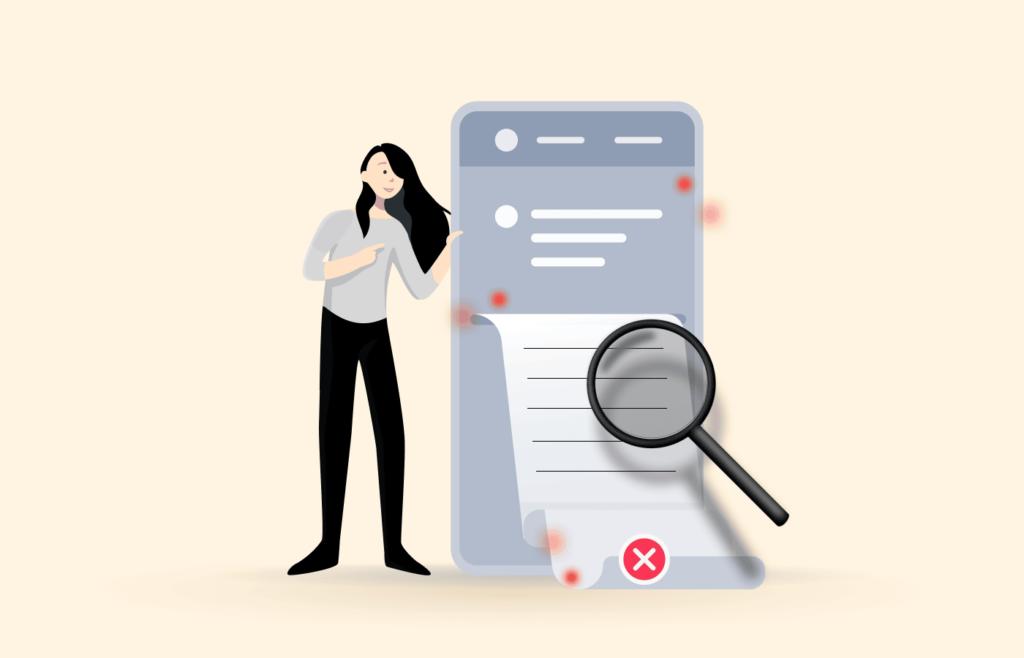
Most people may be reluctant to avoid cracked/pirated VPNs because doing so means saving money on an actual subscription. However, this is important for your online security.
Below, you’ll find tips on how to avoid hacked VPNs and potentially get quality VPNs cheap or even free.
1. Find VPNs with affordable subscription fees
Numerous VPNs are available for download on the internet. If you’re trying to save money, you may choose one of the cheaper VPN options.
On average, VPNs cost about $10 per month, but you may find many between $3 and $4. The value of the VPN typically depends on its level of functionality. This means that, while you may find a $3 VPN, its offered features can differ substantially from one that costs $10.
2. Subscribe to an actual plan from the VPN’s official website
The best way to avoid cracked VPNs is to visit the vendor’s official website. Any VPN you download from an official website is sure to be authentic, or the website can point you to official stores.
Below are ways by which you can identify an actual VPN website.
- Actual brand name: The web address or URL will contain the actual name of the brand or company. For example, you can download ExpressVPN from expressvpn.com, which shows the app’s registered name.
- Safe and secure website: You can also identify an authentic website by checking whether it’s secure. Businesses and organizations generally secure their websites using the https:// protocol rather than the ordinary http://. However, since hackers can also obtain the certificate for this protocol, you may need to check for other indicators to determine the website’s status.
- Clean and organized web pages: Genuine VPN websites have clean and friendly interfaces to perform your actions efficiently. They usually have no pop-ups or irrelevant ads and contain every detail about the VPN. You can also find the link to the “About Us” webpage on the homepage for information about the company, owner, mission, and vision.
- Hyperlinks from review platforms: If you’re using a review website to learn more about a VPN, you may be able to visit its official website from there. Hyperlinks from these websites will send you to the right page to quickly subscribe and download the VPN.
3. Make long-term rather than short-term payments
Despite their monthly average cost, most VPNs are cheaper when you sign up for longer contracts. The actual monthly average is around $10, but the annual package may only cost $4, while the biannual package only costs $2.
The initial payment may look huge, but you eventually save excess costs. These cost savings can, sometimes, be as high as 83% of the original monthly payment.
4. Research deals, prices, and promotions
Hundreds of VPN programs are available, so the competition is naturally fierce. Due to this, you can always find some exciting promos and deals.
Most VPN vendors partner with influencers and content creators to provide cost-saving promo codes. These VPNs can give mouth-watering discounts during their anniversaries or other important events. They may also organize contests that give you unlimited access for a limited time.
It’s essential to be careful when researching deals, promos, and lower VPN prices. If a deal sounds too good to be true, it most likely isn’t. Be more wary of deals you come across on social media and online forums and confirm dubious promises from official sources.
Cracked VPN alternatives
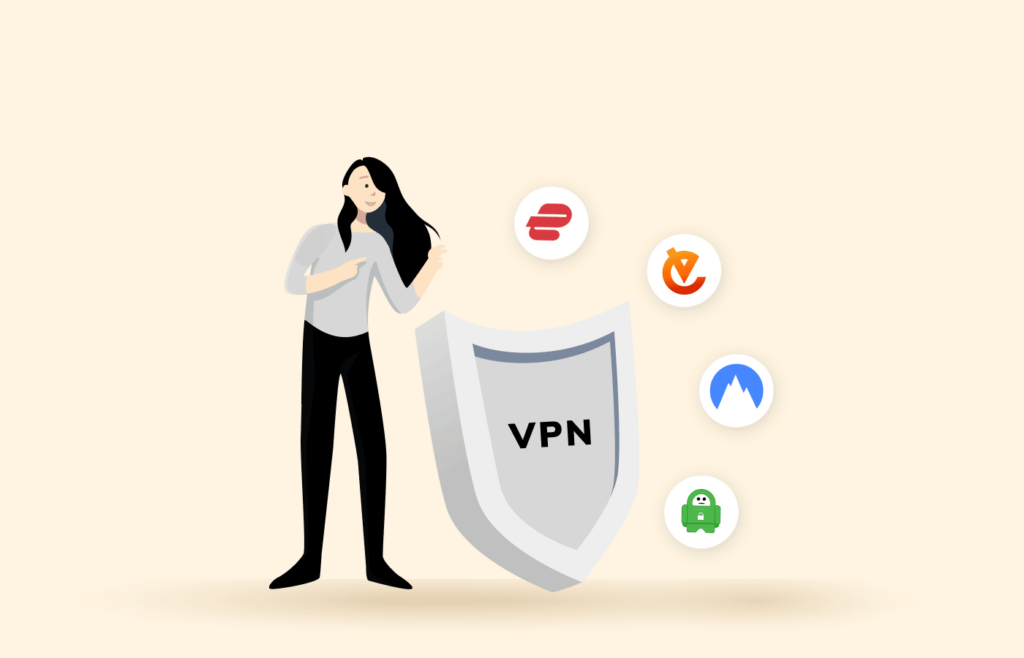
If you need an affordable VPN, choose one of our three recommended choices below.
1. ExpressVPN

A top-notch and fast VPN service that offers advanced encryption to keep your online activities safe and private. It offers lightning-fast speeds and unlimited bandwidth, making it suitable for streaming, gaming, torrenting, and downloading.
Pros
- Excellent security and privacy features
- High-speed internet servers
- 3 extra months free on the annual plan
Cons
- Expensive than most other VPNs
ExpressVPN is a globally recognized service that has built a legacy around its network of vast, ultrafast internet servers and trusted security privacy and security features. It has over 3,000 secure servers in 105 countries, including the US, so you can bypass geo-restriction for most regions and access anything you want online.
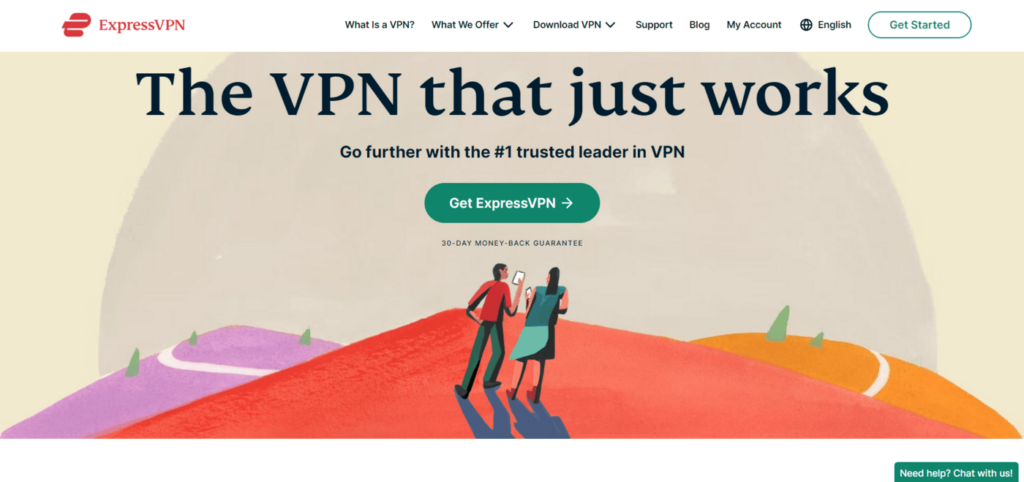
The service uses AES 256-bit encryption, which experts have tested and considered the most secure form of encryption. The VPN does not log and deletes your DNS queries, browsing history, and IP addresses as you browse, preventing anyone from tracking you with them.
For a positive user experience, this VPN is compatible with all major devices, including iPhone, Windows, Mac, Android, and web extensions. You can also complain or make inquiries through its live chat and customer support, available 24/7.
2. Private Internet Access (PIA)
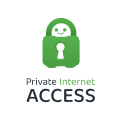
An industry-leading VPN service that boasts exceptional security features, robust encryption protocols, and the ability to bypass censorship and geo-restrictions.
Pros
- Affordable VPN with a simple interface
- Fast speed servers with stable connectivity
- Available on all platforms, including consoles, routers and smart TVs
Cons
- Varying server speeds
PIA is a budget-friendly VPN service with all the premium features that a robust VPN should have. It’s one of the largest VPNs containing more than 28,000 servers in 90+ countries. However, more than half of its servers are in the US.
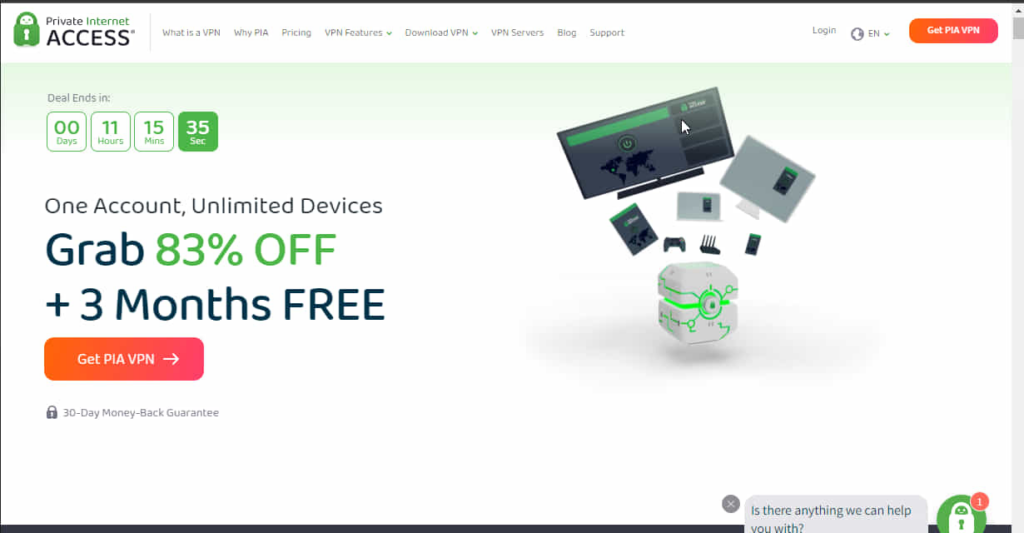
Its servers are fast and support high-definition videos up to 4K resolutions. If you enjoy online video and game streaming, this will give you an enjoyable experience.
This VPN emphasizes users’ security and privacy. It features DNS leak protection, malware and ad blockers, 256-bit AES encryption, and a customizable kill switch.
PIA’s core competitive advantage, though, remains its cheap subscription fees. Its three-year deal costs $2.03 per month, and you get an extra three months for free.
3. Surshark

A versatile VPN service that offers lightning-fast speeds and ensures affordable online privacy with top-tier security features.
Pros
- Camouflage mode for extra privacy
- Inexpensive activation and subscription fee
- Impressive cross-platform support
Cons
- Distant servers may exhibit speed lags
Surfshark’s defining feature is its support for simultaneous connections on unlimited devices. You can connect as many devices as you want. Despite these multiple device connections, you won’t notice any speed lags.
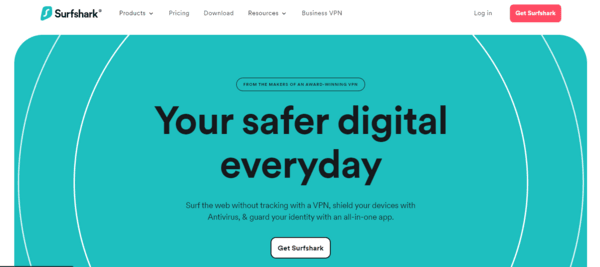
An initial fee of $1.99 also makes it very affordable and one of the low-cost VPNs we recommend. Also, subscribing to a three-year plan gives you three months for free. You also have a 30-day money-back guarantee if you are unsatisfied with the features or services.
For enhanced security, Surfshark uses the WireGuard, IKEv2, and OpenVPN protocols to secure your data, together with 256-bit AES encryption. Its customer service is also friendly, and you can access it through its website or apps on Windows, Android, iOS, Linux, and macOS at any time.
Can a hacked VPN help me stream safely?
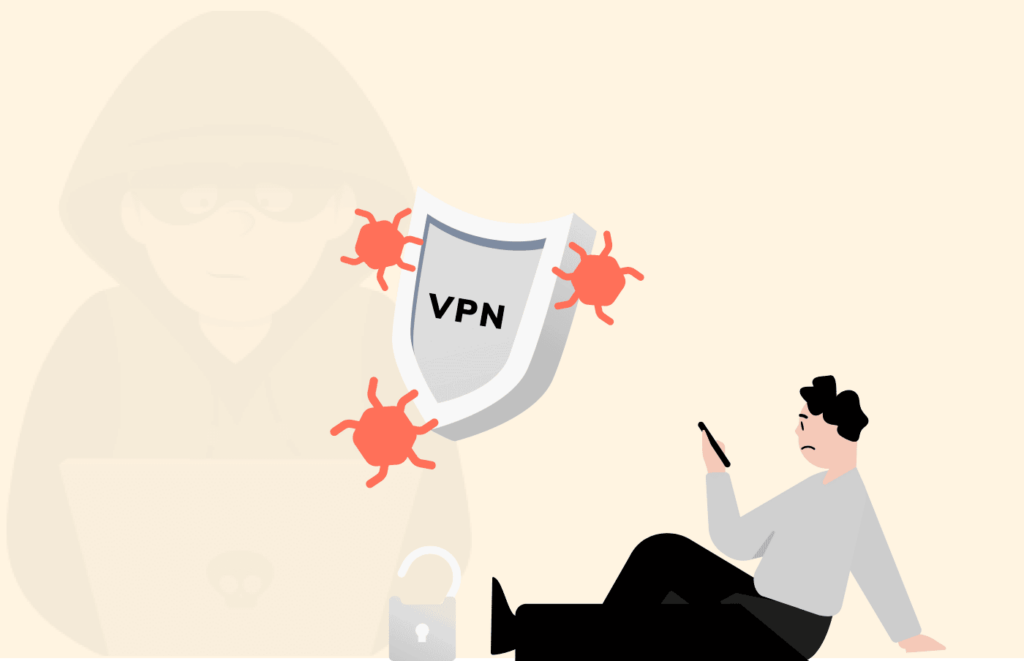
No, using hacked VPN services to watch free movies online is unsafe and generally not recommended. Here are a few key reasons why:
- Security risks: Hacked VPNs pose huge security and privacy risks. They may claim to hide your IP address but expose your information or inject malware. It’s extremely risky since you don’t know who hacked the VPN or controls the servers.
- Unreliable service: Hacked VPNs often have unstable connections, slow speeds, data limits, and server outages. They are not optimized for smooth, uninterrupted video streaming, and you could frequently lose connections and have playback issues.
- No legal protection: Using such a VPN provides no legal cover if you engage in illegal streaming activities. Despite claims otherwise, it will not shield your identity or location. When using hacked or illegal providers, you have no recourse if your information gets compromised.
- Promotes piracy: Hacked VPNs are often used to access illegal pirated content. By using such services, you inadvertently help support online piracy networks and cybercrime, which raises severe moral and ethical concerns.
For safe and smooth online streaming, avoid cracked VPNs and use reputable paid providers that stand behind their products. While free options exist, too, paid services tend to offer the best speeds, features, and security needed for streaming media.
FAQs
If you didn’t download a hacked VPN yourself, you can identify one in several ways. First, you can’t access all its features, and its size may be bigger than the genuine version. Besides, it may be a cracked version if you receive numerous pop-ups after connecting to your VPN.
It depends on the level of encryption that the VPN uses. High-end, premium VPNs, such as ExpressVPN and PIA, use AES-256 encryption, which is currently the most advanced form of data encryption. Even the fastest supercomputers will require a long time to decrypt this, making them highly safe and secure.
Free VPNs are different from these hacked VPNs. A free VPN has its name, list of features, and functionality it offers at no cost. However, it often fails to provide the level of security and privacy that premium VPNs offer. Moreover, using a free VPN has most of the risks of using a cracked VPN, such as adware and privacy risks. Nonetheless, while a free VPN can be cracked, it’s usually unnecessary since it is already free. Cracked VPNs, especially the maliciously crafted variants, are usually successful in luring users when they offer premium VPNs.
VPNs encrypt your online data and reroute the traffic through a secure tunnel. This tunnel is typically a physical server that hides your IP address and tricks ISPs and other snoopers into believing you’re in a different location.
